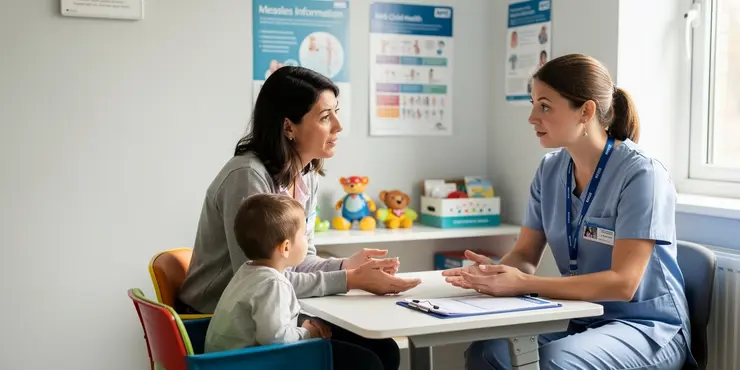
Find Help
More Items From Ergsy search
-
Is there a treatment for measles?
Relevance: 100%
-
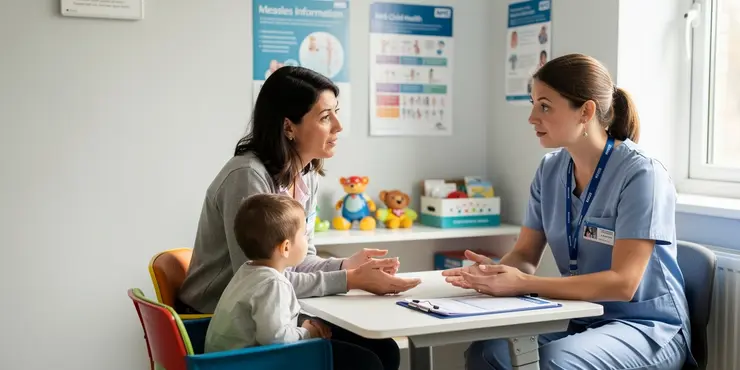
Is there a treatment for measles?
Relevance: 100%
-
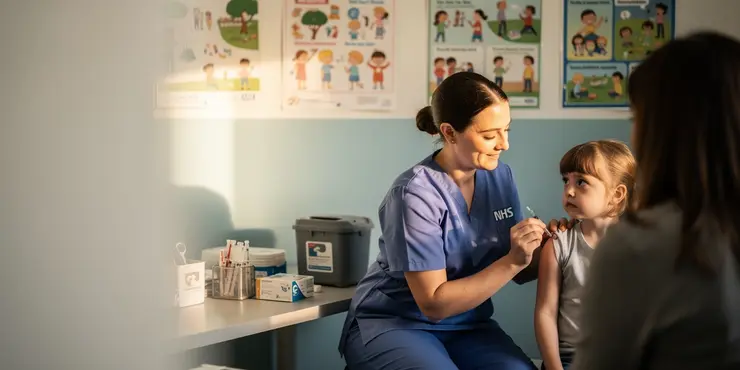
Measles
Relevance: 74%
-
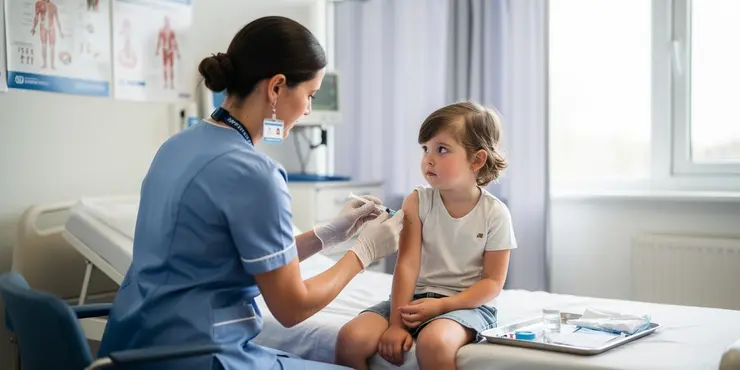
What is measles?
Relevance: 74%
-
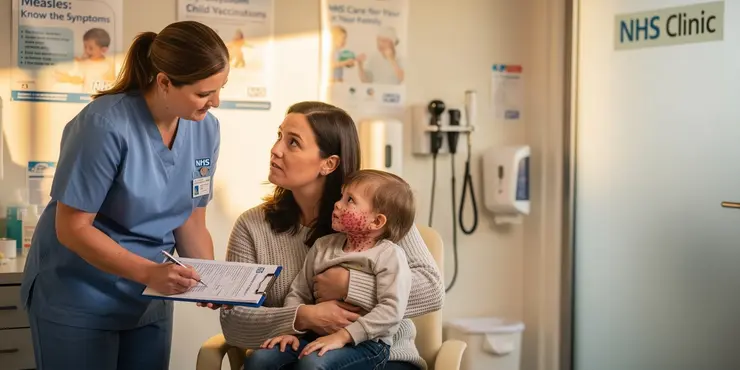
Can measles be treated?
Relevance: 72%
-
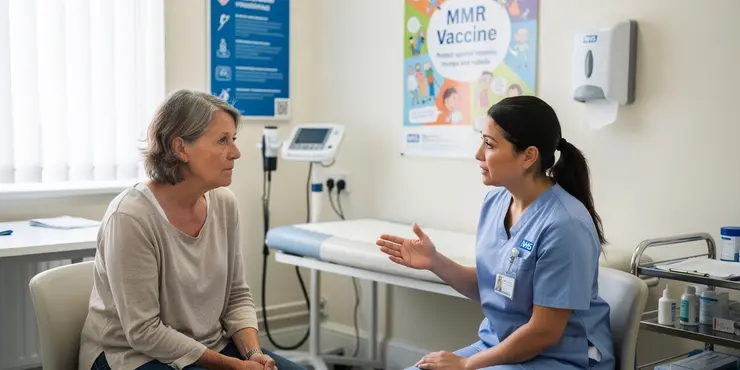
Can adults get measles?
Relevance: 68%
-
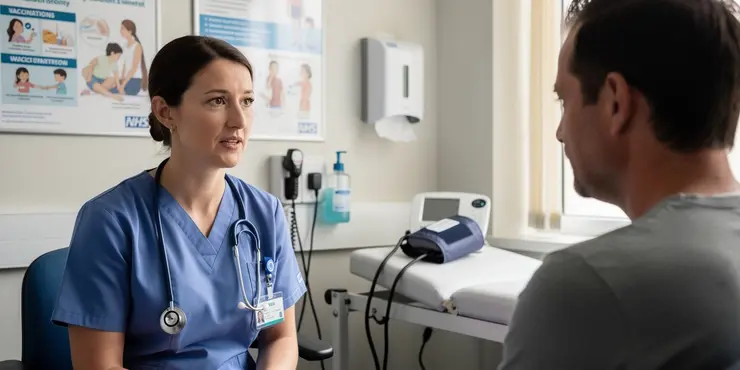
How is measles transmitted?
Relevance: 68%
-
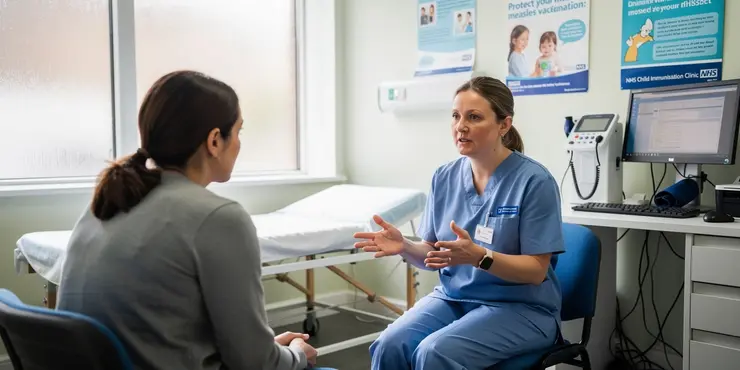
Can measles be serious?
Relevance: 68%
-
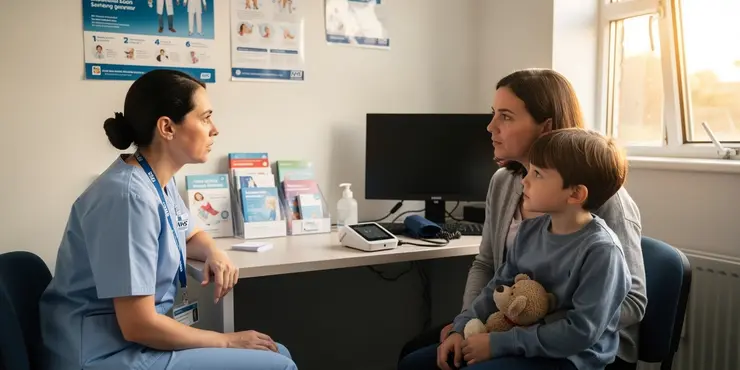
Are measles outbreaks common in the UK?
Relevance: 68%
-
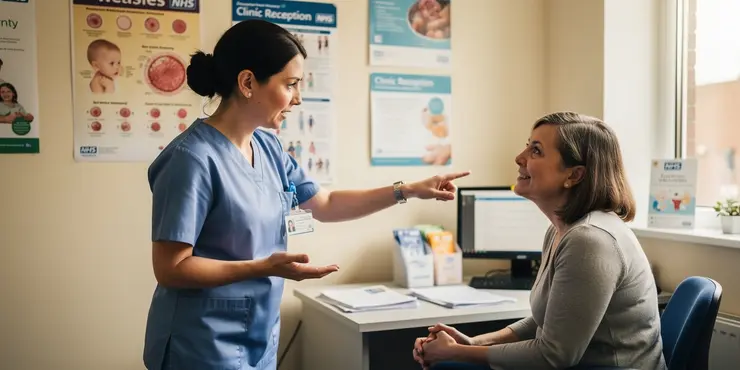
What are the symptoms of measles?
Relevance: 67%
-
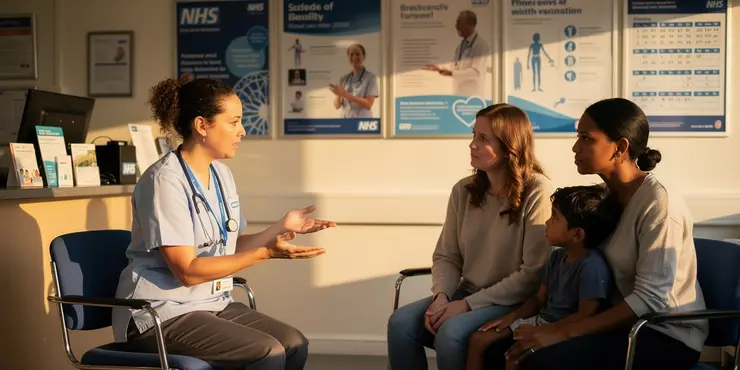
How long is a person with measles contagious?
Relevance: 65%
-
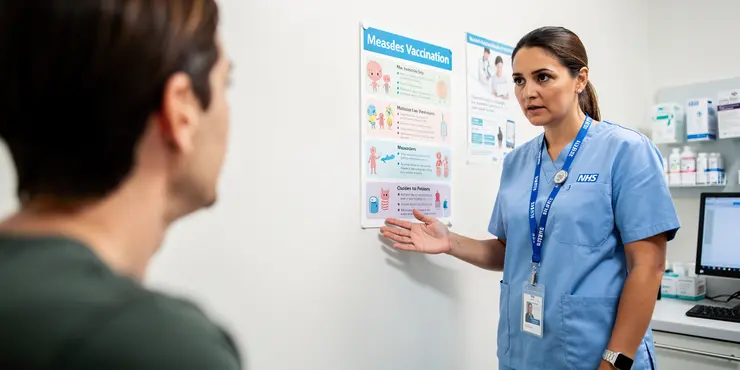
Are measles more common outside of the UK?
Relevance: 65%
-
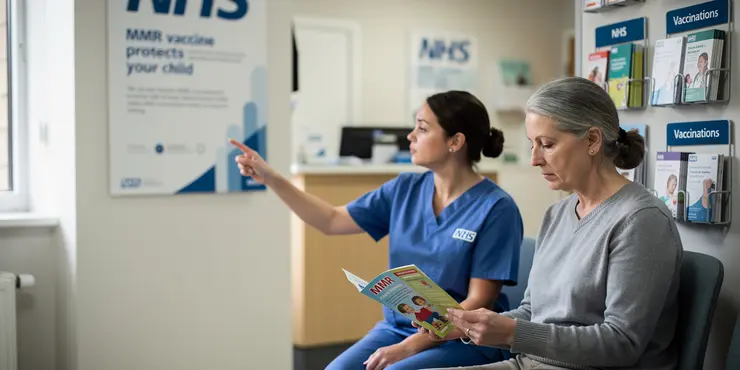
Are measles cases rising in the UK?
Relevance: 65%
-
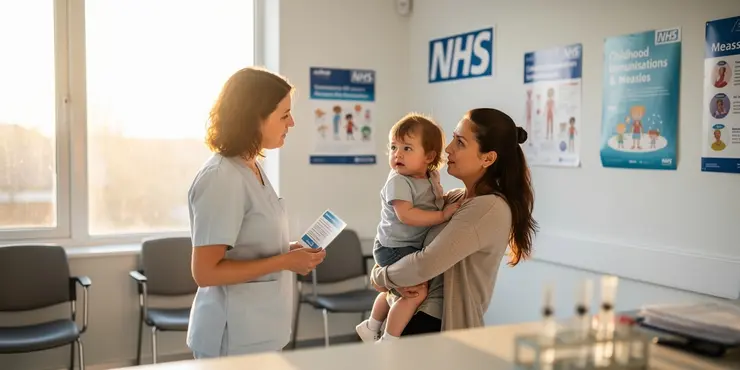
How contagious is measles?
Relevance: 65%
-
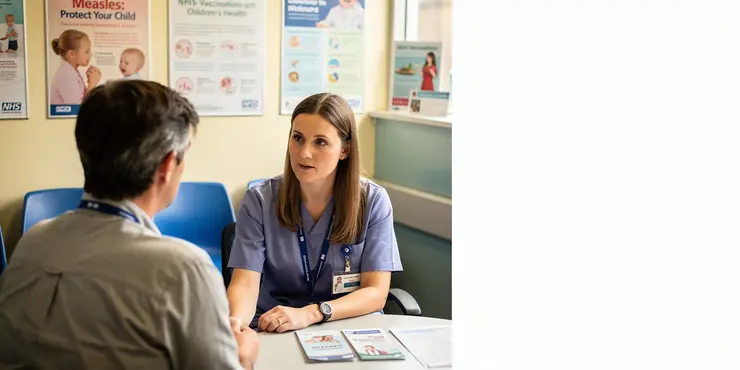
How is measles transmitted?
Relevance: 65%
-
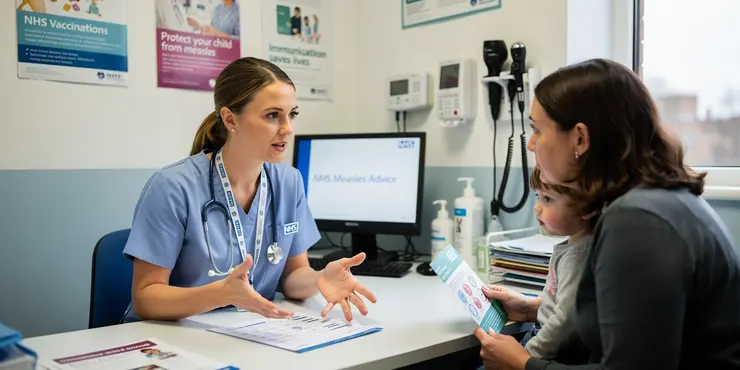
How is measles spread?
Relevance: 64%
-
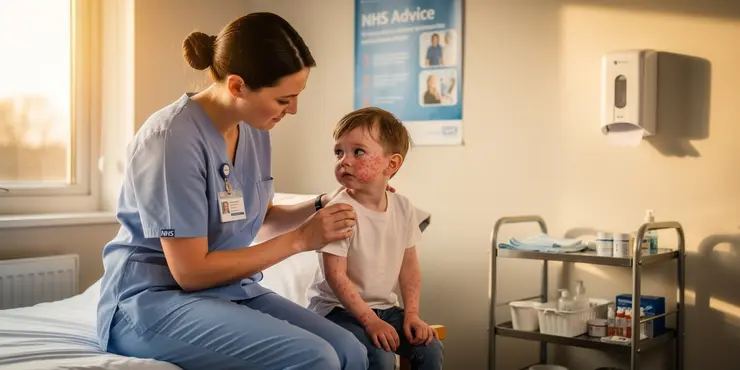
What are the symptoms of measles?
Relevance: 64%
-
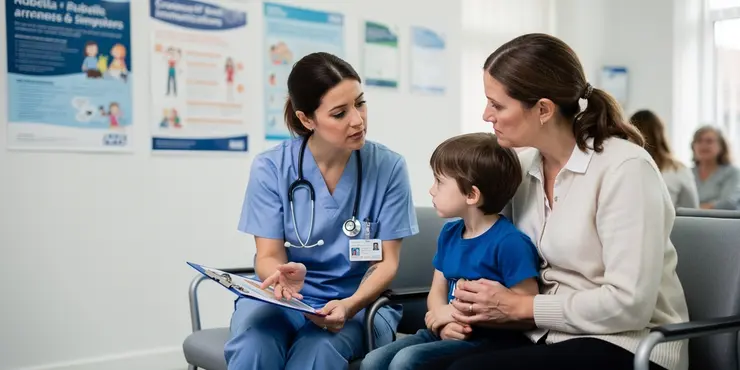
Is Rubella the same as measles?
Relevance: 64%
-
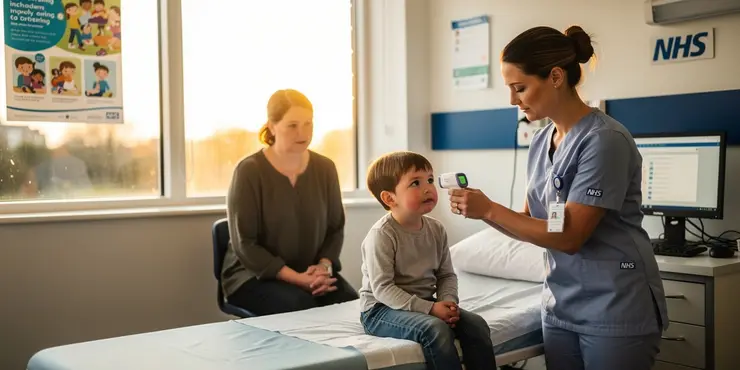
What are the symptoms of measles?
Relevance: 64%
-
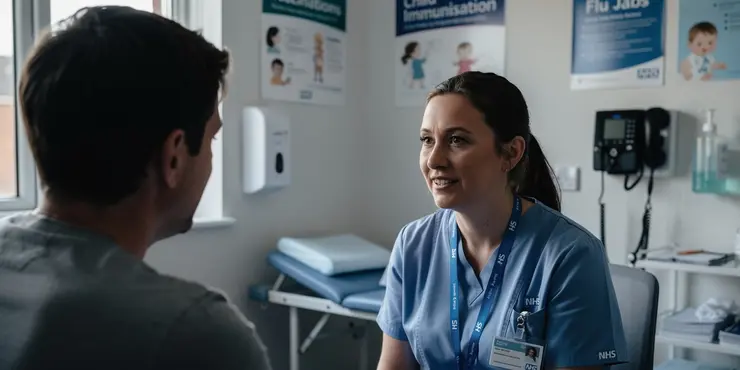
Why is measles less common in the UK?
Relevance: 64%
-
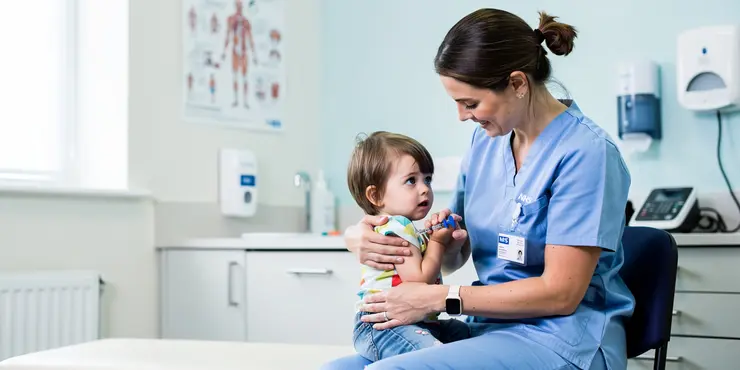
Can measles cause complications?
Relevance: 63%
-
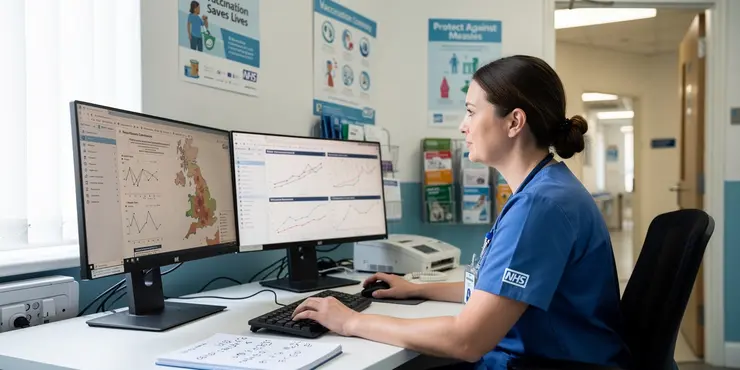
How does the UK monitor measles outbreaks?
Relevance: 62%
-
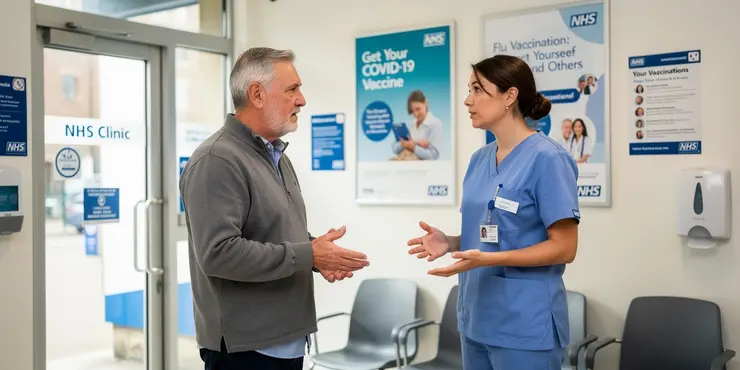
Are adults in the UK at risk from measles?
Relevance: 62%
-
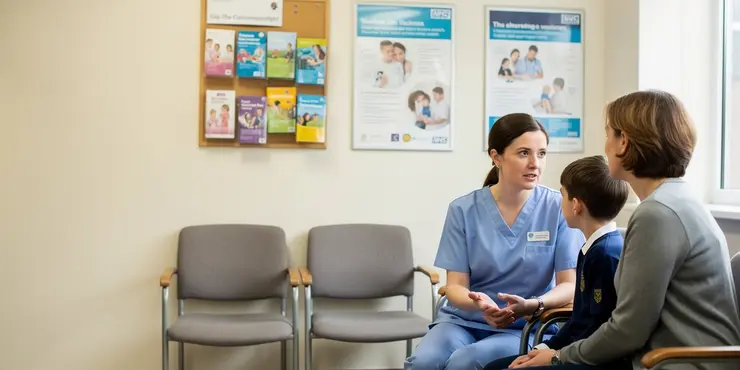
How can measles be prevented?
Relevance: 61%
-
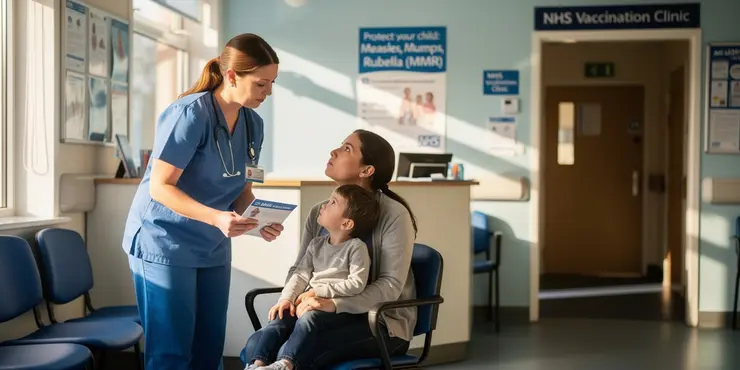
Are measles cases currently rising in the UK?
Relevance: 61%
-
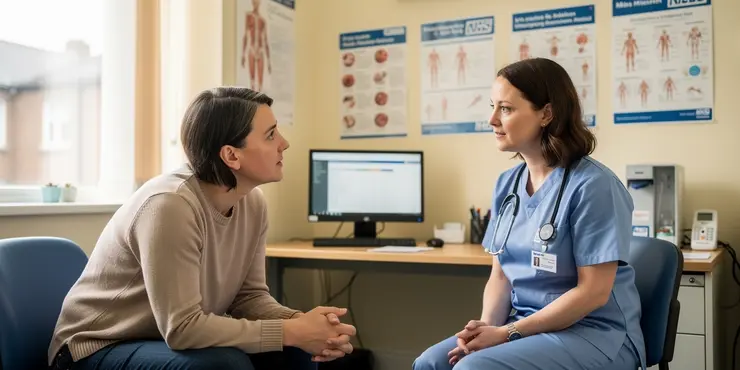
What should I do if I suspect I have measles?
Relevance: 61%
-
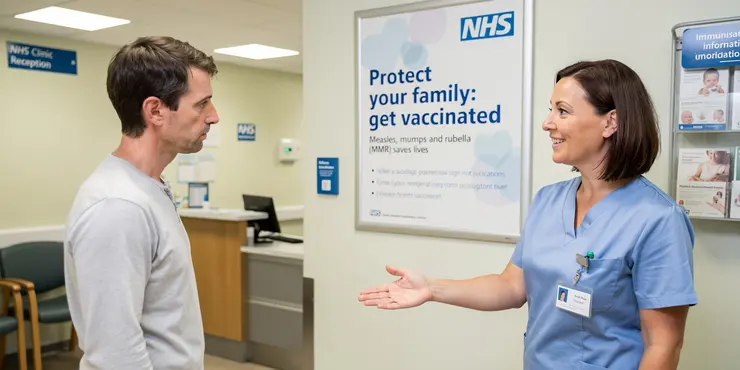
What is causing the rise in measles cases in the UK?
Relevance: 61%
-
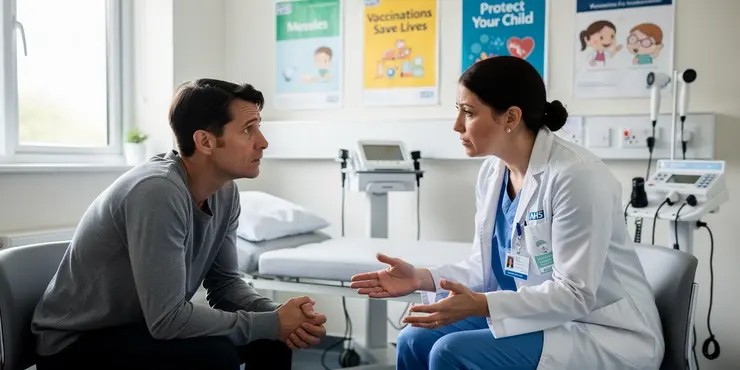
What complications can arise from measles?
Relevance: 61%
-
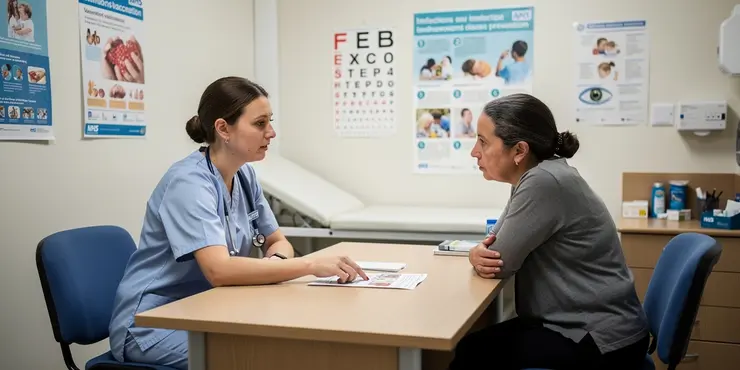
What should you do during a measles outbreak?
Relevance: 60%
-
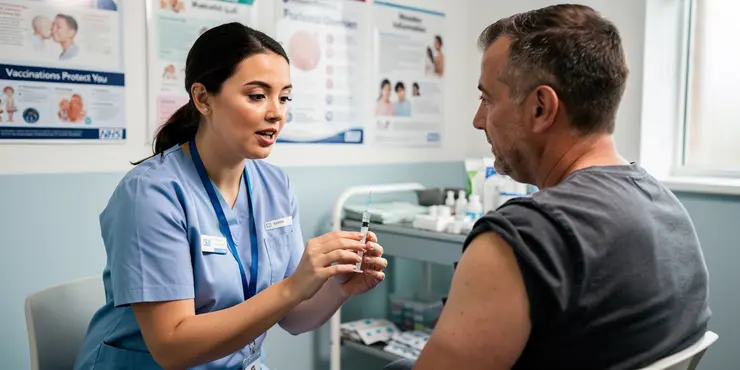
Can the measles vaccine be given to adults?
Relevance: 60%
-
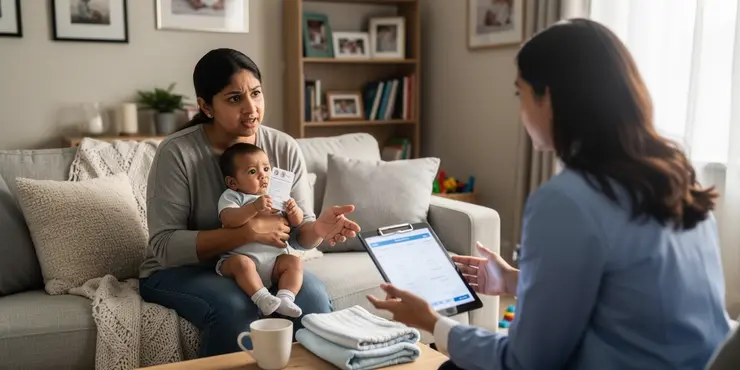
Who is most at risk from measles?
Relevance: 60%
-
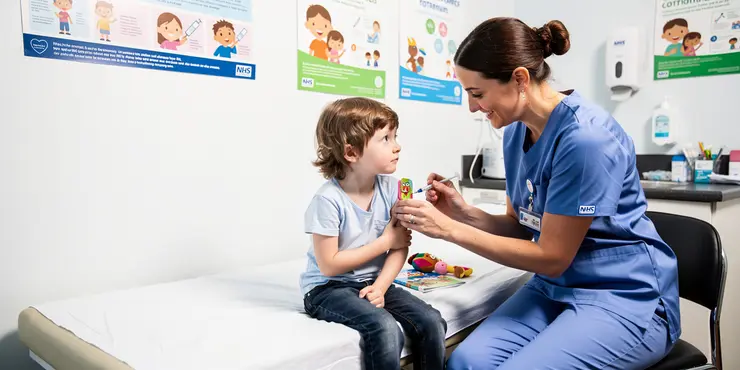
Which countries have higher rates of measles?
Relevance: 60%
-
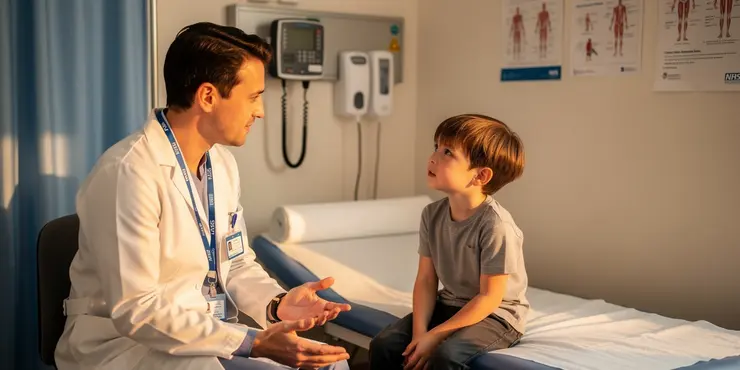
Why are measles outbreaks still occurring?
Relevance: 60%
-
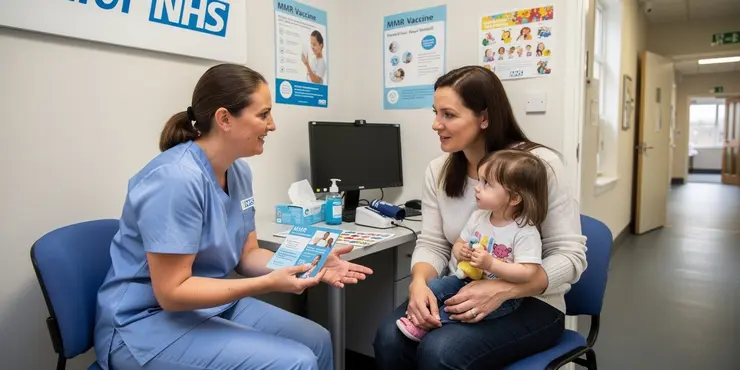
How can measles outbreaks be prevented?
Relevance: 59%
-
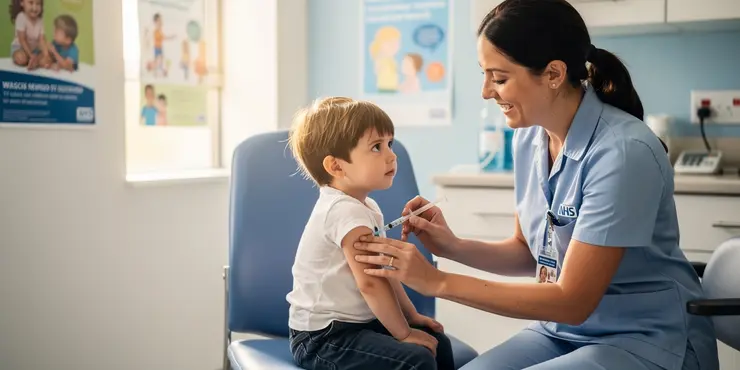
What is the current measles vaccination coverage in the UK?
Relevance: 58%
-
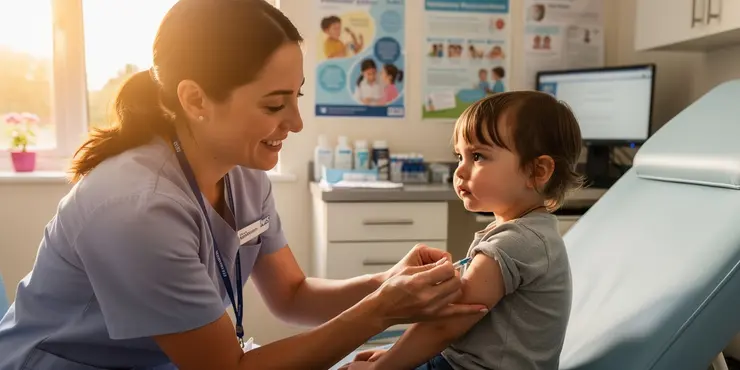
How does vaccination affect measles rates?
Relevance: 58%
-
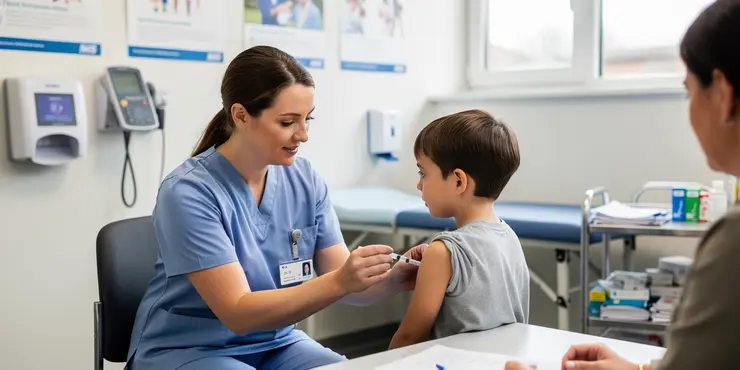
Can you get measles more than once?
Relevance: 58%
-
What should you do if you suspect you have measles?
Relevance: 58%
-
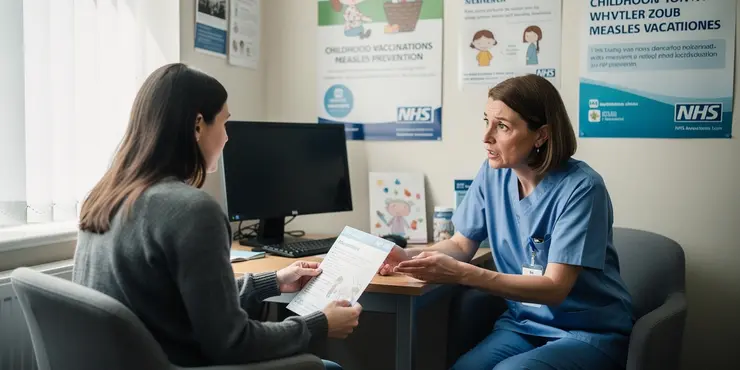
Is there a risk of global spread if measles cases rise in the UK?
Relevance: 58%
-
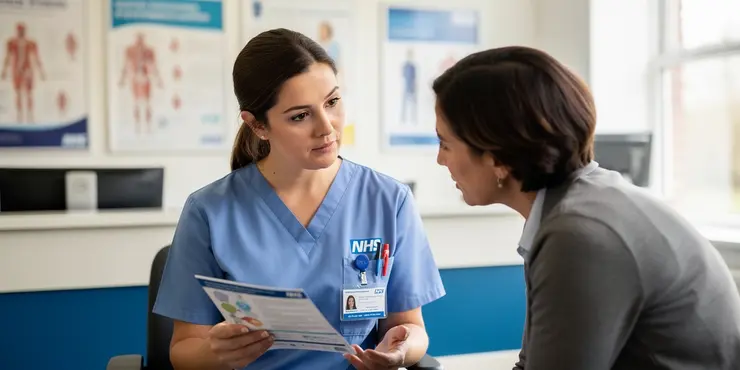
Is it necessary to get a measles vaccine before travelling?
Relevance: 58%
Treatment for Measles
Measles, also known as rubeola, is a highly contagious viral infection that primarily affects children but can occur in people of all ages. While there is no specific antiviral treatment for measles, supportive care is essential to manage symptoms and prevent complications. In the United Kingdom, healthcare professionals focus on alleviating symptoms and keeping patients comfortable. Below, we outline the key aspects of treatment and care for measles patients.
Symptomatic Relief and Support
The primary goal of measles treatment is to alleviate symptoms while the body's immune system works to clear the virus. Commonly prescribed remedies include the use of paracetamol or ibuprofen to reduce high fever and relieve aches. Additionally, patients are advised to consume plenty of fluids to prevent dehydration and rest adequately to support their recovery. Maintaining a humidified environment can also help to soothe coughs and ease respiratory discomfort.
Vitamin A Supplementation
Vitamin A deficiency is associated with more severe measles infections, and providing supplemental vitamin A has been shown to reduce the severity of the disease. The World Health Organization recommends high-dose vitamin A for children with measles, particularly in low-income settings. In the UK, clinicians may administer vitamin A as part of the treatment regime for children with measles, especially if they exhibit symptoms of malnutrition.
Preventing and Managing Complications
Complications from measles can include ear infections, diarrhea, pneumonia, and, in rare cases, encephalitis. In the UK, it's crucial to monitor for these complications as part of patient care. Antibiotics may be prescribed for bacterial infections such as pneumonia or otitis media that occur secondary to the measles virus. Hospitalization may be necessary for severe cases, particularly if respiratory support or intensive monitoring is needed.
Immunization and Public Health Measures
The most effective way to prevent measles and its complications is through vaccination. The MMR (measles, mumps, and rubella) vaccine is part of the routine childhood immunization program in the UK, typically administered in two doses at 12 months and again at 3 years and 4 months. Ensuring high vaccination coverage is crucial for preventing outbreaks and protecting vulnerable populations. Public health campaigns focus on maintaining high vaccination rates to achieve herd immunity.
In summary, while there is no cure for measles, effective management includes symptomatic relief, vitamin A supplementation, and vigilant monitoring for complications. Vaccination remains the most vital tool in preventing the disease and its spread within the community.
Treatment for Measles
Measles is a virus that spreads easily and mostly affects children. It can happen to anyone, though. There is no special medicine to kill the measles virus, but doctors and nurses can help you feel better and stop problems from happening. Here, we will talk about how to care for someone with measles.
Helping with Symptoms
The main goal when treating measles is to help you feel better while your body fights the virus. Doctors might give you medicine like paracetamol or ibuprofen to lower high fevers and make body pains go away. It is also important to drink lots of water to stay hydrated and to get plenty of rest. Using a humidifier can help with coughing and breathing easier.
Vitamin A
Not having enough vitamin A can make measles worse. The World Health Organization suggests giving extra vitamin A to kids with measles, especially in places where people don’t get enough nutrition. In the UK, doctors may give vitamin A to kids with measles if they seem to need more nutrients.
Watching for Problems
Measles can lead to other problems like ear infections, diarrhea, pneumonia, or, very rarely, brain swelling. In the UK, doctors watch for these problems as part of taking care of measles patients. If a person gets a bacterial infection, like pneumonia, they might need antibiotics. Sometimes, a hospital stay is needed if someone is very sick and needs extra help breathing or close care.
Vaccination and Public Health
The best way to stop measles is with a vaccine. In the UK, children get the MMR vaccine (measles, mumps, and rubella). They get it twice: first at 12 months, then again at 3 years and 4 months old. Making sure everyone gets these vaccines helps stop measles from spreading and protects people who might get very sick. Public health efforts focus on getting lots of people vaccinated to keep everyone safer.
In short, there is no cure for measles, but you can feel better with symptom relief, vitamin A, and watching for problems. Vaccines are the most important way to stop measles from spreading in the community.
Frequently Asked Questions
What is the treatment for measles?
There is no specific antiviral treatment for measles. Supportive care, including rest, hydration, and paracetamol for fever, is recommended.
How can measles be prevented?
Measles can be prevented with the measles, mumps, and rubella (MMR) vaccine. Two doses provide good protection.
Is measles contagious?
Yes, measles is highly contagious and spreads through respiratory droplets from coughs and sneezes.
What are the symptoms of measles?
Symptoms include fever, cough, runny nose, inflamed eyes, and a red rash that typically spreads from the head.
How long does the measles rash last?
The measles rash usually lasts for about 7 to 10 days.
When should I seek medical attention for measles?
Seek medical attention if there are complications such as difficulty breathing, persistent fever, or symptoms of dehydration.
Can measles cause complications?
Yes, complications can include diarrhoea, ear infections, and in severe cases, pneumonia or encephalitis.
Who is at risk of catching measles?
Unvaccinated individuals, young children, and people with weakened immune systems are more at risk.
Can adults get measles?
Yes, adults who are not vaccinated or have not had measles before can contract the disease.
Is there a measles outbreak in the UK?
Measles outbreaks can occur, so it's important to stay informed through public health announcements and vaccination updates.
What should I do if I've been exposed to measles?
Contact your healthcare provider to discuss your need for vaccination or immunoglobulin if appropriate.
Can measles be serious?
Yes, measles can be serious, especially for young children and immunocompromised individuals.
What is the MMR vaccine?
The MMR vaccine is a combined vaccine that protects against measles, mumps, and rubella.
How effective is the MMR vaccine?
The MMR vaccine is about 97% effective at preventing measles after two doses.
Is the MMR vaccine available on the NHS?
Yes, the MMR vaccine is available for free on the NHS for children and eligible adults.
How do you treat measles?
When you have measles, you feel sick. Here are ways to help you feel better:
- Get lots of rest. Sleep helps your body heal.
- Drink plenty of water and juice. It stops you from getting thirsty.
- Ask a grown-up for medicine if you have a fever. It can help you feel better.
- Stay in a quiet place. Too much noise can make you feel worse.
- Keep your room dark if your eyes hurt. This can make it feel better.
If you are very sick, or if you are worried, talk to a doctor. They can help you too.
There is no special medicine to cure measles. To feel better, you should rest, drink water, and take paracetamol to help your fever go away.
How can we stop measles?
You can stop measles by getting the MMR shot. This shot also helps with mumps and rubella. Getting two shots gives good protection.
Can you catch measles from someone else?
Yes, you can catch measles from another person. Measles is easy to catch. It can spread when someone with it coughs or sneezes.
If you are worried about measles, you can:
- Talk to a doctor or nurse for help.
- Make sure to get your vaccine to stay safe.
Yes, measles is very easy to catch. It spreads when someone coughs or sneezes and tiny drops get into the air.
What happens when you have measles?
Here is what you might notice if you have measles:
- You might get a fever. This means you feel very hot.
- Your throat might hurt. This is called a sore throat.
- You could get a cough. This means you keep making a noise from your throat.
- Your eyes might get red and hurt. This is called sore eyes.
- You could get spots on your skin. These are small red dots.
If you think you have measles, you should tell a grown-up and see a doctor.
You might feel sick with a high body temperature (fever). You could also have a cough, a runny nose, sore eyes, and red spots on your skin. These red spots usually start on your face and move down your body.
How long does the measles rash stay?
The measles rash stays on your skin for 7 to 10 days.
When should I see a doctor for measles?
If you think you have measles, go to the doctor. Look for these signs:
- You have a high fever.
- You have a red rash all over your body.
- You feel very tired.
- Your eyes hurt or are red.
If you have these signs, ask a grown-up to help you see a doctor. The doctor can make you feel better.
Using pictures or videos can help you understand more about measles. Ask someone you trust to help you find this information.
Go to the doctor if you have problems like trouble breathing, a fever that won't go away, or if you are not getting enough water.
Can measles cause problems?
Yes, measles can cause problems. These are called complications. Here are some things that might happen:
- Ear infections
- Pneumonia (a serious lung infection)
- Diarrhea (when you have to go to the toilet a lot)
- Swelling of the brain (this is rare, but it can happen)
If you or someone you know has measles, it's important to go to the doctor. They can help you feel better.
Using pictures or videos can help you understand more. Ask a friend or family member to explain if you need help.
Yes, sometimes problems can happen. You might get a runny tummy, sore ears, or sometimes, really bad things like a lung infection or a brain problem.
Who can get measles?
Measles can spread between people. Some people are more likely to get it:
- People who have not had the measles vaccine.
- Children and adults who have not had measles before.
- People who travel to places where measles is common.
To stay safe, get the measles vaccine. Ask a doctor if you need help.
People who have not had the vaccine, young kids, and people whose bodies can't fight sickness well are more in danger.
Can grown-ups get measles?
Yes, grown-ups can get measles.
Measles is a virus that can make you sick.
It is important to get a vaccine to protect yourself from measles.
If you think you might have measles, tell a doctor.
For more help with reading, you can use audiobooks or ask someone to read with you.
Yes, grown-ups who have not had the measles vaccine or have never had measles can get sick with measles.
Is there a measles outbreak in the UK?
Are lots of people getting measles in the UK?
Measles is a sickness that makes you feel very unwell. Look out for red spots on the skin.
Ask a grown-up if you are worried. You can also use pictures or videos to help understand.
Measles can spread quickly. It's important to listen to health news and get your vaccinations.
What to Do If You Have Been Near Someone with Measles
1. **See a Doctor:** Go to a doctor and tell them you were near someone with measles.
2. **Get Help Fast:** Do this quickly. It is important to act fast.
3. **Look for Signs:** Watch for signs of measles. These might be a rash, fever, cough, or red eyes.
4. **Stay Away:** Stay away from other people so you do not spread measles.
5. **Use Tools:** You can use pictures or videos to learn more about measles. Ask someone to help you understand.
Talk to your doctor or nurse to find out if you need a vaccine or a special medicine. They can help you decide what's best for you.
Can measles be dangerous?
Yes, measles can be dangerous. It can make you very sick. It is important to see a doctor if you have measles.
Things that can help:
- See a doctor if you feel sick.
- Get plenty of rest to help your body get better.
- Drink lots of water to stay healthy.
Yes, measles can be very serious. It is especially dangerous for young children and people who are not strong at fighting germs.
What is the MMR shot?
The MMR shot helps keep you healthy. It stops you from getting sick with three illnesses: measles, mumps, and rubella. Getting this shot is important because it protects you and others around you.
If you need help understanding more about MMR, you can ask a doctor or a nurse. They can tell you more about why the shot is good for you.
The MMR vaccine is a shot that protects you from getting sick with measles, mumps, and rubella.
How well does the MMR shot work?
The MMR shot stops measles, mumps, and rubella. It works really well! It keeps most people from getting sick.
If you want to know more, you can ask a doctor or nurse. They can help you understand. Using pictures and videos about the MMR shot can also help.
The MMR vaccine stops people from getting measles. It works 97% of the time after two shots.
Can you get the MMR vaccine from the NHS?
Yes, you can get the MMR vaccine for free from the NHS. It helps protect you from measles, mumps, and rubella.
What can help:
- Ask your doctor or nurse for more information.
- Look at pictures of measles, mumps, and rubella to understand why the vaccine is important.
- Watch a video about how vaccines work.
Yes, children and some adults can get the MMR shot for free on the NHS.
Useful Links
This website offers general information and is not a substitute for professional advice.
Always seek guidance from qualified professionals.
If you have any medical concerns or need urgent help, contact a healthcare professional or emergency services immediately.
Some of this content was generated with AI assistance. We’ve done our best to keep it accurate, helpful, and human-friendly.
- Ergsy carfully checks the information in the videos we provide here.
- Videos shown by Youtube after a video has completed, have NOT been reviewed by ERGSY.
- To view, click the arrow in centre of video.
- Most of the videos you find here will have subtitles and/or closed captions available.
- You may need to turn these on, and choose your preferred language.
- Go to the video you'd like to watch.
- If closed captions (CC) are available, settings will be visible on the bottom right of the video player.
- To turn on Captions, click settings .
- To turn off Captions, click settings again.
More Items From Ergsy search
-
Is there a treatment for measles?
Relevance: 100%
-

Is there a treatment for measles?
Relevance: 100%
-

Measles
Relevance: 74%
-

What is measles?
Relevance: 74%
-

Can measles be treated?
Relevance: 72%
-

Can adults get measles?
Relevance: 68%
-

How is measles transmitted?
Relevance: 68%
-

Can measles be serious?
Relevance: 68%
-

Are measles outbreaks common in the UK?
Relevance: 68%
-

What are the symptoms of measles?
Relevance: 67%
-

How long is a person with measles contagious?
Relevance: 65%
-

Are measles more common outside of the UK?
Relevance: 65%
-

Are measles cases rising in the UK?
Relevance: 65%
-

How contagious is measles?
Relevance: 65%
-

How is measles transmitted?
Relevance: 65%
-

How is measles spread?
Relevance: 64%
-

What are the symptoms of measles?
Relevance: 64%
-

Is Rubella the same as measles?
Relevance: 64%
-

What are the symptoms of measles?
Relevance: 64%
-

Why is measles less common in the UK?
Relevance: 64%
-

Can measles cause complications?
Relevance: 63%
-

How does the UK monitor measles outbreaks?
Relevance: 62%
-

Are adults in the UK at risk from measles?
Relevance: 62%
-

How can measles be prevented?
Relevance: 61%
-

Are measles cases currently rising in the UK?
Relevance: 61%
-

What should I do if I suspect I have measles?
Relevance: 61%
-

What is causing the rise in measles cases in the UK?
Relevance: 61%
-

What complications can arise from measles?
Relevance: 61%
-

What should you do during a measles outbreak?
Relevance: 60%
-

Can the measles vaccine be given to adults?
Relevance: 60%
-

Who is most at risk from measles?
Relevance: 60%
-

Which countries have higher rates of measles?
Relevance: 60%
-

Why are measles outbreaks still occurring?
Relevance: 60%
-

How can measles outbreaks be prevented?
Relevance: 59%
-

What is the current measles vaccination coverage in the UK?
Relevance: 58%
-

How does vaccination affect measles rates?
Relevance: 58%
-

Can you get measles more than once?
Relevance: 58%
-
What should you do if you suspect you have measles?
Relevance: 58%
-

Is there a risk of global spread if measles cases rise in the UK?
Relevance: 58%
-

Is it necessary to get a measles vaccine before travelling?
Relevance: 58%


